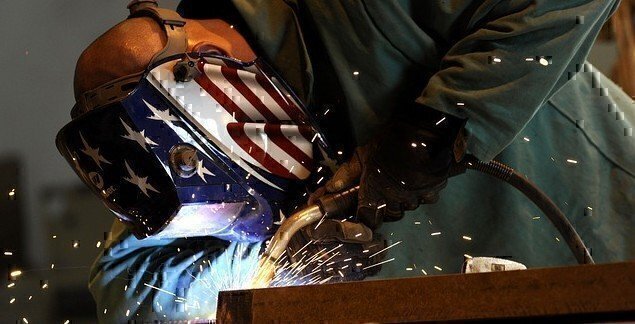SPONSORED CONTENT
If you’re a veteran looking for a job, let’s assume that you’re not interested in taking yourself out of the workforce by spending years in college to maybe get a better-paying job.
Many veterans should check out opportunities in the skilled trades, as their military experience can help them transition seamlessly.
G.I. Jobs Virtual Career Expo
March 24, 2021, 12-4PM EST
Find the Position You Want at the Virtual Career Expo
This Virtual Career Expo online chat will connect you directly with organizations from the comfort of your home, office, smartphone or tablet. Our online, cloud-based platform makes it easy and fun for you to participate. After signing in, you’ll be able to explore the available information and opportunities, and participate in 1-on-1 chats with representatives from participating organizations. Share your background and experience, and get all your questions answered. Among those in attendance will be our event sponsor, California Institute of Arts & Technology. Unable to attend an event in person? You can still submit your résumé to a specific event for all employers to review online.
What Are Skilled Trades?
There is no official list of jobs that qualify as skilled trades. Some, such as plumbers, carpenters and pipefitters, are more or less universally acknowledged as skilled trades, while others hang at the border between general labor or even professional fields.
The aspects that all skilled trade jobs have in common are that they rely on expert knowledge and abilities to perform a typically labor-intensive task. These are not jobs that require sitting around and thinking, nor are they of the “move this thing over there” variety. You can’t just wing a pipe fitting or a load-bearing beam. Specialized tools and knowledge are a must for the skilled trades.
Why Skilled Trades?
So why should you consider a skilled trade as a career? Well, for veterans uninterested or unable to go to college, skilled trades are one of the best ways to earn a solid income. While the gap between the various jobs can be significant, many skilled trades are in demand and often start at or above $20 per hour and rise with experience.
Another reason for many skilled trade jobs is the high degree of job security. Factories can close or move, the latest programming language could fall out of favor, even many specialized fields that require college degrees can be automated or made irrelevant by changes in technology. Toilets will continue to clog until the end of time. They will always need a hero to make them safe for use.
What You Need for Skilled Trades
As for the skills you’ll require, there are a number of ways to get your start.
Perhaps you’ve already started down that path in the military. It’s not uncommon for the military to train their personnel with the primary or secondary skills needed for a trades career. Sometimes you can get trained up on the job, either by hiring in directly to do the job, or cross-training with a skilled professional.
While it’s not the most common route, there are times where college courses can be a valuable method for getting the skills needed for the trades. Maybe you decided after a few semesters that an engineering degree wasn’t for you, but those skills might still be useful as a carpenter or electrician.
One of the most common ways to get into the skilled trades is through an apprenticeship. An apprenticeship is a long-term period of on-the-job training that often begins with reduced pay rates until the apprentice attains full competency (and pay) at the end.
The rules for apprenticeship can vary by jurisdiction and field, so it’s important to research the expectations and benefits of an apprenticeship before getting started. There are a number of places where you can find information on apprenticeship opportunities, including from the US Department of Labor’s Office of Apprenticeship, local unions or from businesses directly.
Education and Training for Skilled Trades
In a previous article, we wrote about the possibility of using GI Bill benefits to offset the lower pay-rates at the beginning of an apprenticeship, so you might want to check out that as well.
Certifications can also be very important for the skilled trades, and the attainment of a certification can often be the trigger for a higher pay scale, or even a requirement to start work. For instance, in some states pipefitters are required to have secondary certification to work with natural gas lines. Again, it’s important to always be aware of the federal, state, company and union guidelines on certifications in order to maximize career opportunities.
For many veterans, skilled trades occupy a sweet spot between physical work and using your head. They offer good career prospects, solid pay and the ability to get right to work, rather than waiting for years to get a college degree. With the availability of paid apprenticeships and the high demand for many of the skilled trades, any veteran interested in a career without going to college would be wise to at least give the skilled trades a look.
READ NEXT
$100k Security Contracting Jobs for Veterans
What You Need to Know About Other-Than-Honorable Discharge
5 Differences Between Army and Marine Corps Infantry




